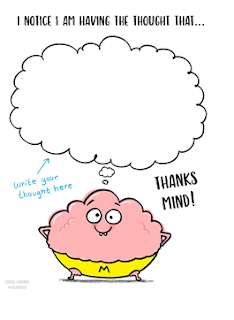Mind Matters : Guest Post by Ms. Archita Basu
Dear readers, giving a pause to
my story, I would like to post a guest post by Ms. Archita Basu. Ms. Archita
Basu has been my mentor for the past three years and guiding me with Akshat's
language and emotional skills. I
consider myself lucky to get connected with her and thankful to her
that she accepted my request to write for my blog. With her constant support
and guidance, Akshat and I have evolved as better human beings and learned
that, after all, the mind matters.
Ms. Archita Basu is a parent to
an adult with ASD. Besides being passionate about autism, she has done Master's
in English from Calcutta University. Her core autism education has been in M.Ed
in autism from Birmingham University. She has authored a chapter in the book,
Lives with Autism(2014), edited by Dr. Steve Mee, Autism Programme Leader at
the University of Cumbria, UK. She has worked as a parental co-trainer with the
trailblazing Inclusive Solutions, UK, and has certified training in behaviour
modification(although she believes it needs radical tinkering in its content),
the TEACCH approach by the legendary Dr. Gary Mesibov, Person-Centered Planning
approaches, SCERTS, and the SPELL Approach by National Autistic Society, UK.
Mind Matters
Home is a place we must all find. It's not just a place where you eat
or sleep. Home is knowing. Knowing your mind, your heart, knowing your courage.
If we know ourselves, we are always home, anywhere."
The Wizard of Oz
This analogy lit up his eyes ,a
moment of understanding 😊
Often we find that children hold a disempowering image of themselves. Our mind moves us towards what we visualize of ourselves. Do we view ourselves as victims suffering at the hands of a capricious destiny or someone who is able to cope and thrive in spite of challenges and sees himself as an empowered human being? Here I would refer to "Psycho-Cybernetics" - a term introduced by Dr. Maxwell Maltz. Psycho-Cybernetics sheds light on how one can use their mind to move oneself towards positive goals and success. How do our children view themselves? This is life changing, a fragmented self-image can actively thwart their dreams and goals, help them to visualize themselves as enlightened self-regulated beings embodying joy, spreading joy and achieving all their dearly loved aspirations.
Deity visualization in Vajrayana Buddhism is a powerful practice that imagines ourselves as we would like to be, as an enlightened being, and this enables us to actualize that state much more quickly. Is it not quite remarkable that Buddhism has been a forerunner to these modern visualization processes used by athletes, coaches, CEOs and there is no reason why we shouldn't use its power with autistic people and make it a part of an empowering narrative.
BE that light !
And yes, before I sign off
sending you all a link below to a very interesting quiz on Howard Gardner's
Theory of Multiple Intelligence, which postulates that there are 9 different
types of intelligence, parents explore it and if possible your children should
do it too, you may be amazed at the revelations, it does reveal your dominant
interests , strengths and bent of mind!
Lots of love
Archita
https://scienceofpeople.typeform.com/to/os0nb8




Comments
Post a Comment